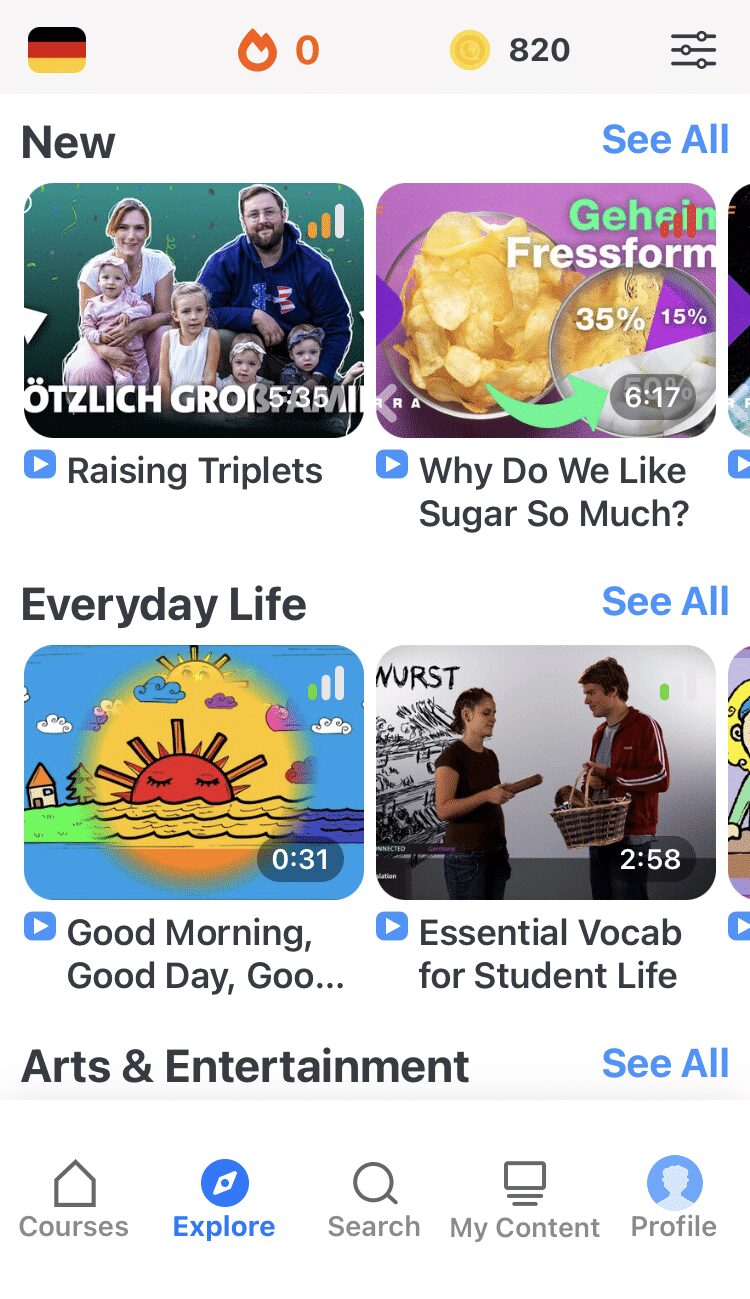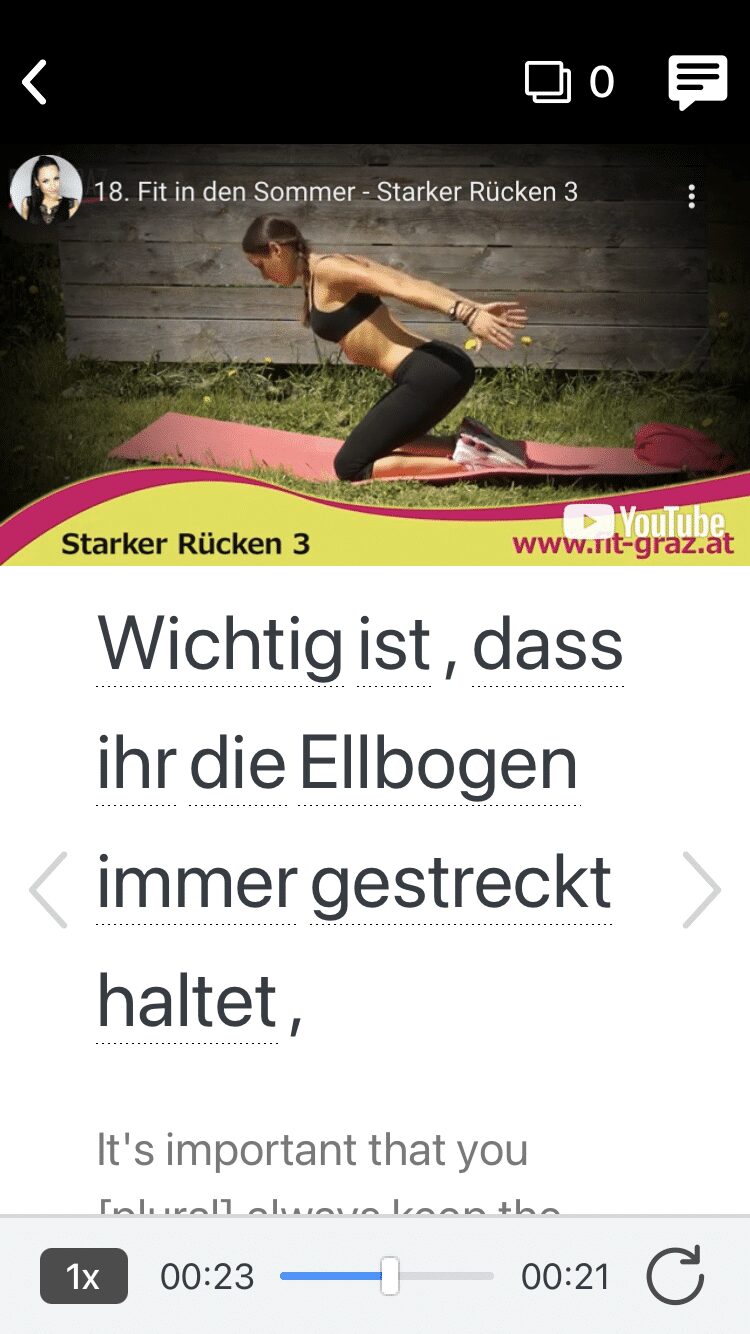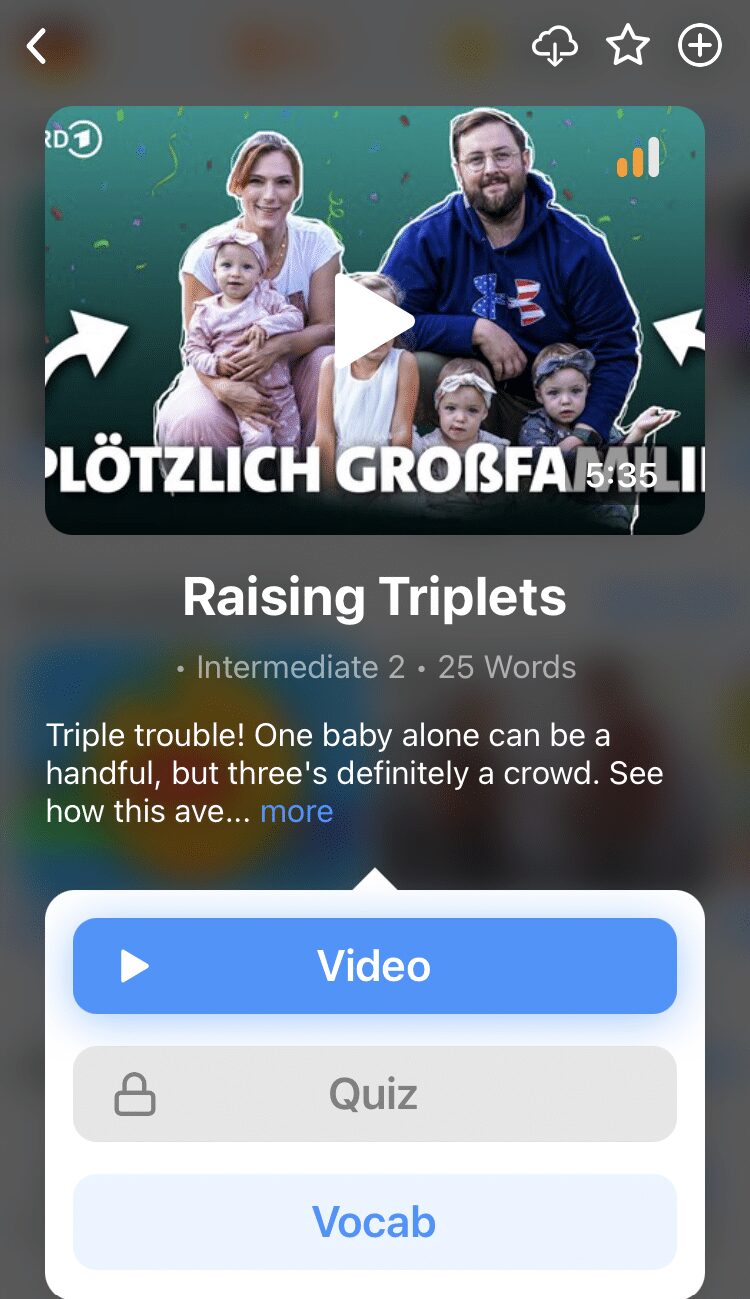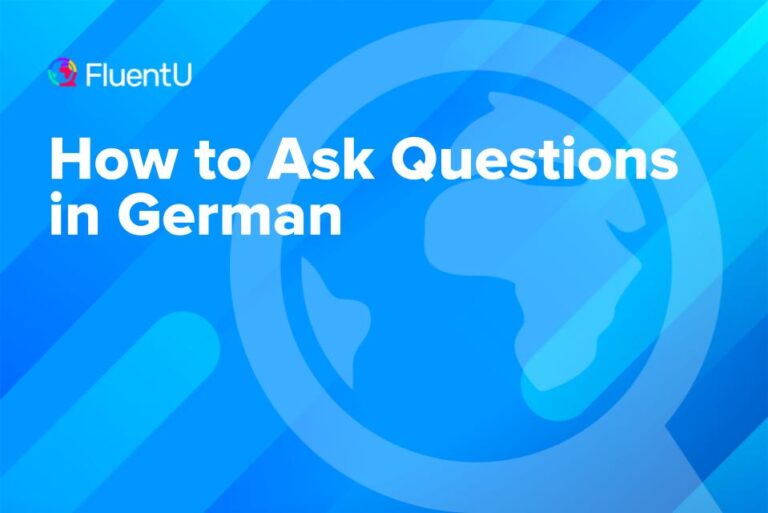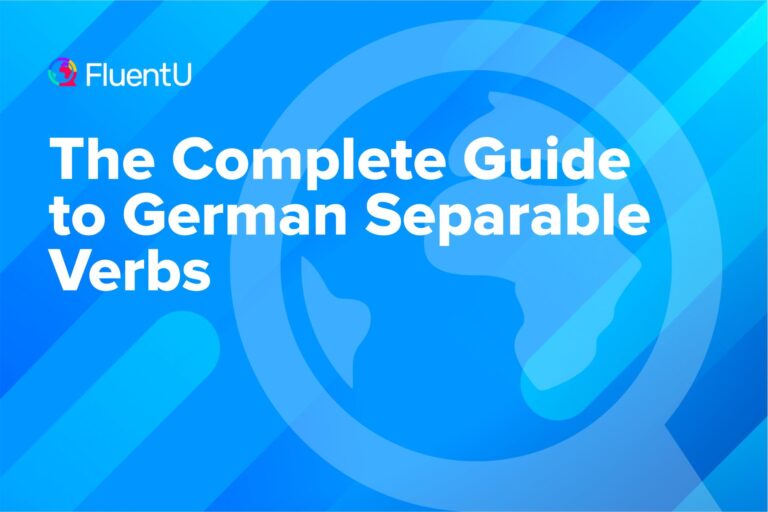Contents
The German Verb “Sein” and All Its Conjugations
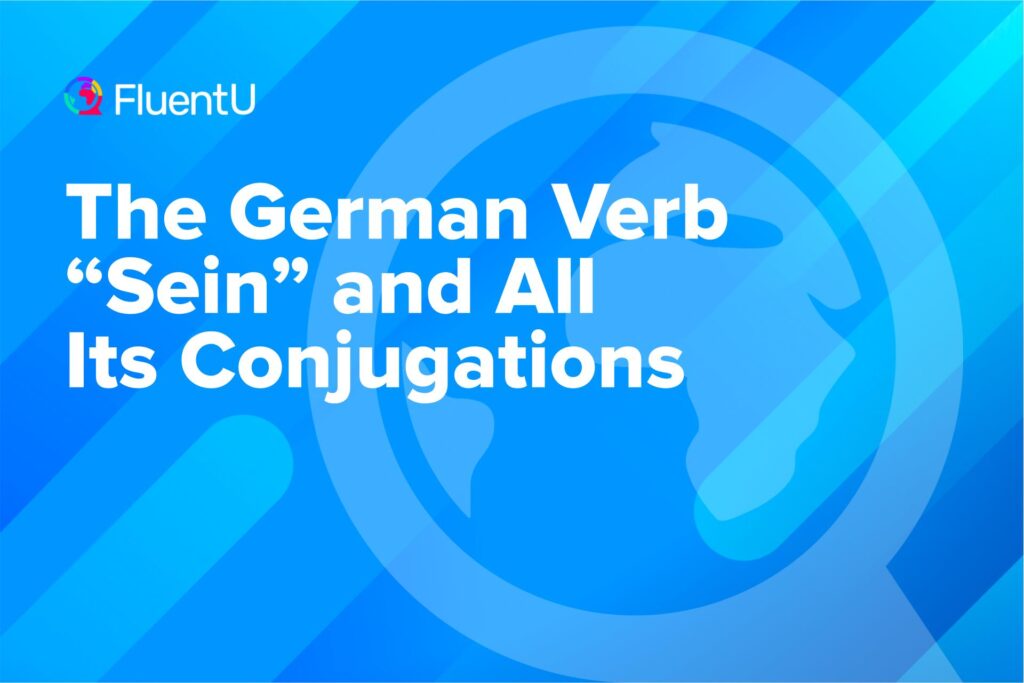
Sein oder Nichtsein, das ist hier die Frage. (To be or not to be, that is the question.)
Sein, which means “to be,” is easily one of the most versatile verbs in the German language. Mastering the basics of this one verb opens up so many aspects of daily conversation.
While sein might be one of the most useful verbs in the German language, it’s also the most irregular—which begs the question: How do you conjugate sein?
Download: This blog post is available as a convenient and portable PDF that you can take anywhere. Click here to get a copy. (Download)
How to Conjugate the German Verb Sein
Since sein appears so frequently in German, learning to conjugate it correctly is essential.
Since it’s irregular, following a pattern all its own, you’re more likely to remember the correct conjugations if you get regular exposure to it.
Sein in the present tense
Using sein in the present tense is pretty straightforward. There’s even some good news here, as German does not have continuous tenses.
We usually use the continuous present tense to describe something happening right now. We form this in English with “to be” and then add –ing to the end of verbs: “I am running” or “She is speaking“.
But in German, this tense simply doesn’t exist! There is no “I am doing”, you just “do”!
So, make sure to not literally translate phrases like “I am working” with sein. You don’t need it.
You can just say the verb on its own in the standard present tense: Ich arbeite. If you want to emphasize that it’s happening right now, just add in an adverb that says so: Ich arbeite gerade. (I’m working right now.)
You will however, need to know how to conjugate sein in the present tense for numerous numerous other situations, so here’s how to conjugate sein in the present tense:
| ich bin (I am) | wir sind (we are) |
| du bist (you are) | ihr seid (you are) |
| er/sie/es ist (he/she/it is) | Sie/sie sind (you/they are) |
Remember: German has multiple words for “you.” Du is the informal singular, ihr is the informal plural, and Sie with a capital “s” can be used for both the formal singular and formal plural.
Sein in the literary past tense
You can use sein in the Präteritum (literary past tense) to say that something was something or somewhere.
Er war im Urlaub. (He was on vacation.)
Here’s how to conjugate sein in the literary past tense, or Präteritum:
| ich war (I was) | wir waren (we were) |
| du warst (you were) | ihr wart (you were) |
| er/sie/es war (he/she it was) | Sie/sie waren (you/they were) |
The German Präteritum is often referred to as the literary past tense because it’s primarily used in formal writing, such as books, newspapers and professional emails.
That being said, the most common ones like sein, haben, and modal verbs are very common in their Präteritum forms in spoken German as well.
Sein and subjunctive II
The subjunctive II, or Konjunktiv II, isn’t a tense, but rather a mood, and it’s used to imply things such as politeness or uncertainty:
Danke, das wäre super. (Thank you, that would be great.)
Here’s how to conjugate sein in the subjunctive:
| ich wäre (I would be) | wir wären (we would be) |
| du wärst/wärest (you would be) | ihr wäret (you would be) |
| er/sie/es wäre (he/she/it would be) | Sie/sie wären (you/they would be) |
Pro Tip: If you ever find yourself in a German-speaking country, a common question the cashier will ask you is, “Wäre das alles?” which means “Would that be all?” You can reply with something like “Ja, danke, das war’s” which means “Yes, thank you, that was it.”
Sein and the perfect tense
How sein is used to form the perfect tense
One of the reasons why sein is the most important verb in German is that it’s used alongside haben to form the Perfekt (perfect) tense.
Most German speakers use the Perfekt to describe the past in both spoken German and informal writing, such as texts with friends and family.
To form the Perfekt, you need two things: an auxiliary verb (haben or sein) and a past participle, or Partizip II. And don’t forget, the participle goes at the end of the sentence!
So, how do you tell when to use sein and when to use haben as the auxiliary verb?
A general rule of thumb is that verbs that take sein involve either motion or a change in condition:
Er ist gefahren. (He drove.)
Er ist gestorben. (He died.)
So, when learning a new verb, if you suspect movement or change is involved, be make sure to check whether the verb takes haben or sein. And don’t worry if you get it wrong initially, just keep practicing and eventually it will become second nature.
Here’s a list of verbs that take sein. Remember that in terms of haben and sein, verbs with separable prefixes behave just like their parent verbs.
If you’re still unsure about how to create the Partizip II, use resources such as Lingolia and VistaWide to learn and practice.
How to conjugate sein in the perfect tense
Sein can be constructed in the Perfekt, just like any other verb. Here we use the present participle of sein, which is gewesen .
| ich bin gewesen (I have been) | wir sind gewesen (we have been) |
| du bist gewesen (you have been) | ihr seid gewesen (you have been) |
| er/sie/es ist gewesen (he/she/it has been) | Sie/sie sind gewesen (you/they have been) |
The Perfekt tense is the basic tense that English native speakers have the most trouble with initially because we tend to translate it directly. Keep in mind that the Perfekt and Präteritum don’t have different meanings in German.
Therefore, both ich bin gewesen and ich war mean “I was,” and both are likely to pop up in Alltagsdeutsch , everyday German.
Sein and the imperative
The Imperativ (Imperative) mood is used to express orders or commands:
| du (informal singular) | sei |
| ihr (informal plural) | seid |
| Sie (formal singular & plural) | seien Sie |
| wir (when making suggestions to a group) | seien wir |
One way to remember the forms is to think of and memorize commands: Sei still! (Be quiet!)
The imperative form can sometimes sound a bit harsh, so check out this article for a more nuanced look at ways to use German commands.
So far what we’ve covered are some of the basics of sein. To use these grammar structures naturally, you can practice using sein in context—try spotting it in German YouTube vlogs, TV shows and other German media, or study with the videos on FluentU.
FluentU takes authentic videos—like music videos, movie trailers, news and inspiring talks—and turns them into personalized language learning lessons.
You can try FluentU for free for 2 weeks. Check out the website or download the iOS app or Android app.
P.S. Click here to take advantage of our current sale! (Expires at the end of this month.)
Now let’s dive a little deeper!
Advanced Uses of the German Verb Sein
Basics are good, but sometimes they just aren’t enough. Particularly if you want to be considered fluent in any language!
Verb tenses such as the Futur II or the Konjunktiv I (which we’ll visit here) might be uncommon in Alltagsdeutsch, but they’re important to know if you want to move past a A2/B1 level of understanding.
The verb forms in this section are challenging, even for advanced/native speakers, so feel free to take your time learning them.
Don’t worry if you struggle at first! Because they’re more complicated, these verb forms are far more common in written German than they are in spoken German.
Sein and the past continuous
The Plusquamperfekt (past continuous) otherwise known as the PQP, is a verb tense used to describe actions that were occurring before the simple past:
Der Zug war schon abgefahren, als wir am Bahnhof angekommen sind. (The train had already left when we arrived at the station.)
Ich dachte, dass er schon gestorben war. (I thought he had already died.)
The same rule for the Perfekt applies here as well: use sein for movement and changes in condition.
The PQP combines the Präteritum and the Perfekt:
| ich war gewesen (I had been) | wir waren gewesen (we had been) |
| du warst gewesen (you had been) | ihr seid gewesen (you had been) |
| er/sie/es war gewesen (he/she/it had been) | Sie/sie sind gewesen (you/they had been) |
When using sein as the Partizip II in the PQP, you’re essentially saying that you were somewhere or something before something else happened.
Ich wusste, dass ich schon mal hier gewesen war. (I knew that I had been here before.)
Insider Tip: Depending on what region you’re in, you may hear the PQP used in place of the Perfekt in the Umgangssprache (slang). Although this is grammatically incorrect, it’s common enough to worth noting.
Sein and subjunctive I
The subjunctive I, or Konjunktiv I, is a mood, just like the Konjunktiv II, but its use is much more limited to formal, business or journalistic German.
Konjunktiv I is typically used in newspapers and news channels because it allows the reporters to maintain distance from what it is that they’re reporting. In Germany, this is called indirect speech, or Indirekte Rede:
Er sagte, dass er kein Krimineller sei. (He said that he isn’t a criminal.)
This is actually a more elegant solution than in English because it directly implies a certain amount of discretion/uncertainty, as opposed to repeatedly having to say “he/she said.”
Unfortunately, because it doesn’t have an English equivalent, the only way you’ll be able to get a feel for it is by experiencing and practicing it!
Here’s how you conjugate sein in the Konjunktiv I:
| ich sei (I am) | wir seien (we are) |
| du seist/seiest (you are) | ihr seiet (you are) |
| er/sie/es sei (he/she/it is) | Sie/sie seien (you/they are) |
Insider Tip: When using either Konjunktiv I or II in the past tense, simply replace the auxiliary verb (haben or sein) with the correct Konjunktiv conjugation.
Das wäre gut gewesen. (That would have been good.)
Er sei nicht da gewesen. ((He said) he wasn’t there.)
Sein and the future
The future, or Futur, tenses are two of the least important German tenses to know, to be honest.
Instead of using the Futur, Germans typically use the present tense with temporal information.
Instead of, “morgen werde ich da sein,” (I will be there tomorrow) you’ll hear, “morgen bin ich da” (I am there tomorrow).
Still, the Futur tense will come up from time to time, so it’s important to know how to conjugate it. For all verbs using this tense, you’ll use conjugations of werden (to be; to become) combined with the verb you’re trying to send into the future (in this case, sein).
Here’s how to conjugate Futur I:
| ich werde sein (I will be) | wir werden sein (we will be) |
| du wirst sein (you will be) | ihr werdet sein (you will be) |
| er/sie/es wird sein (he/she/it will be) | Sie/sie werden sein (you/they will be) |
Even more uncommon is the Futur II, which is used to say that an event will have happened in the future:
| ich werde gewesen sein (I will have been) | wir werden gewesen sein (we will have been) |
| du wirst gewesen sein (you will have been) | ihr werdet gewesen sein (you will have been) |
| er/sie/es wird gewesen sein (he/she/it will have been) | Sie/sie werden gewesen sein (you/they will have been) |
Although the Futur forms are rarely used, they’re sometimes used to emphasize that something will be or will have been.
Wer weiß, was möglich sein wird. (Who knows what will be possible.)
This all might seem like a lot at first, but keep at it and you’ll have sein mastered in no time!
And remember, if you ever need help, wir sind für dich da!
Translation: We’re here for you!
Download: This blog post is available as a convenient and portable PDF that you can take anywhere. Click here to get a copy. (Download)
And One More Thing...
Want to know the key to learning German effectively?
It's using the right content and tools, like FluentU has to offer! Browse hundreds of videos, take endless quizzes and master the German language faster than you've ever imagine!
Watching a fun video, but having trouble understanding it? FluentU brings native videos within reach with interactive subtitles.
You can tap on any word to look it up instantly. Every definition has examples that have been written to help you understand how the word is used. If you see an interesting word you don't know, you can add it to a vocabulary list.
And FluentU isn't just for watching videos. It's a complete platform for learning. It's designed to effectively teach you all the vocabulary from any video. Swipe left or right to see more examples of the word you're on.
The best part is that FluentU keeps track of the vocabulary that you're learning, and gives you extra practice with difficult words. It'll even remind you when it’s time to review what you’ve learned.
Start using the FluentU website on your computer or tablet or, better yet, download the FluentU app from the iTunes or Google Play store. Click here to take advantage of our current sale! (Expires at the end of this month.)

